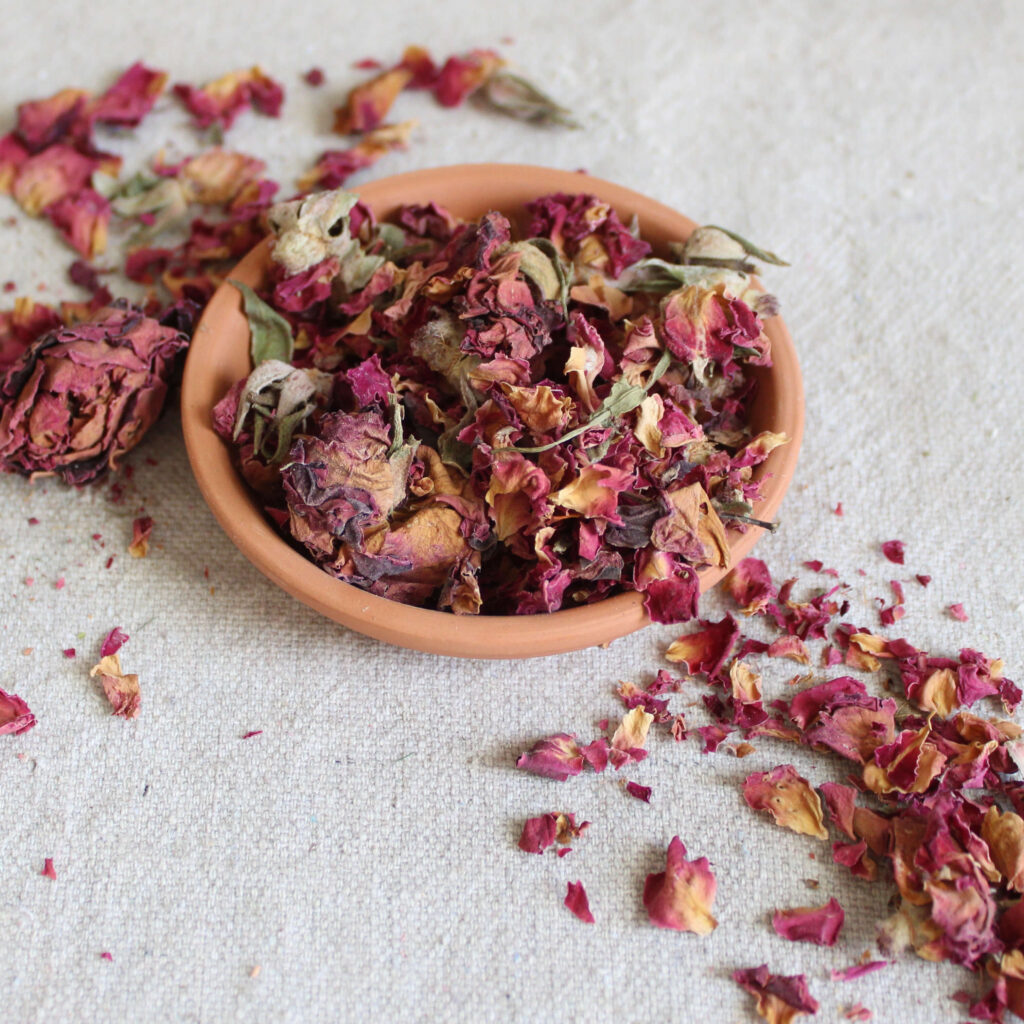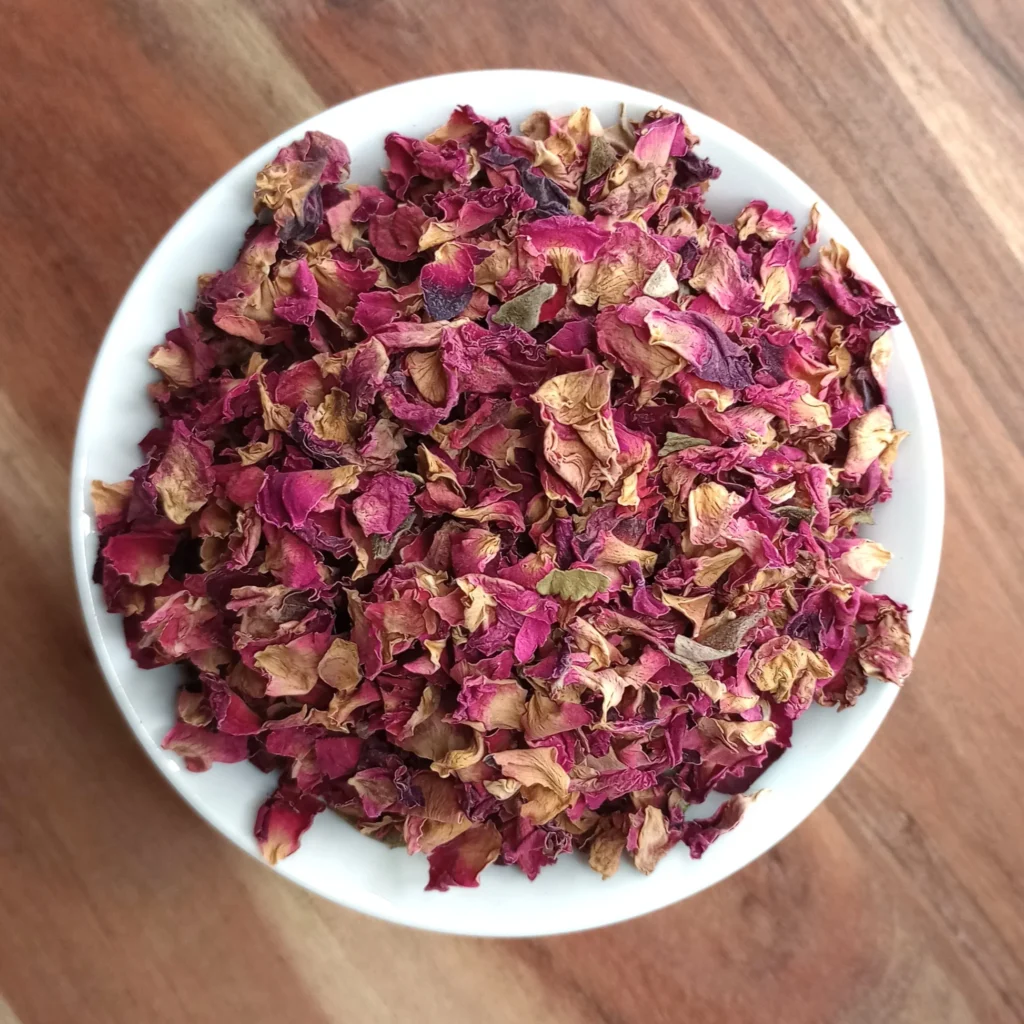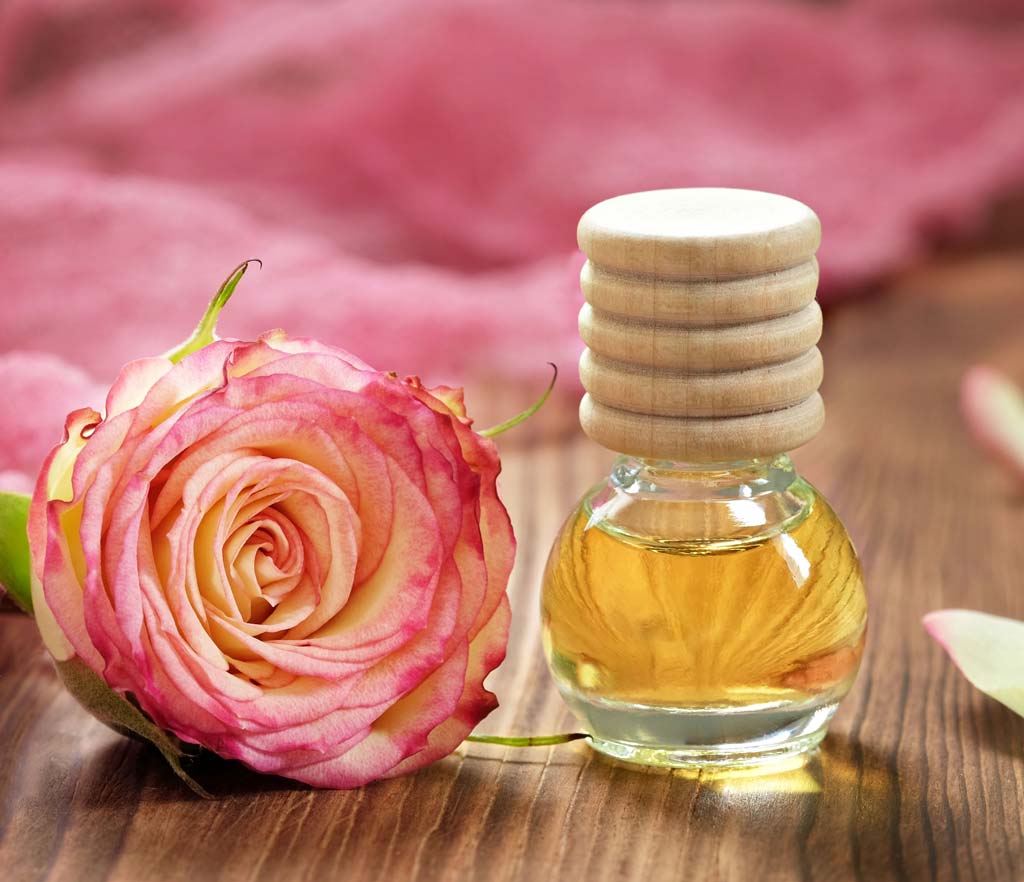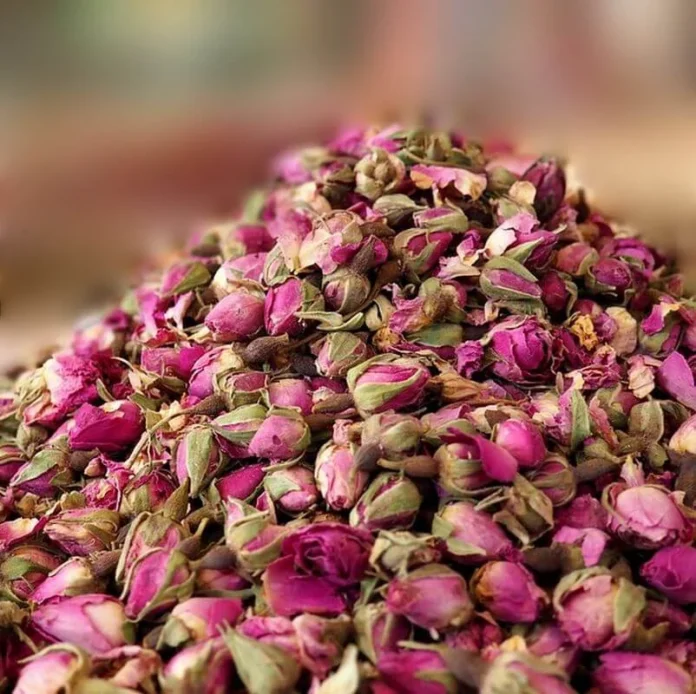INTRODUCTION:
Dried rose flowers are roses that have been preserved by removing their natural moisture through various drying methods, such as air drying, pressing, or using desiccants. This process allows the flowers to retain their shape, color, and fragrance for a long period, making them popular for decorative, aromatic, and therapeutic purposes.Historically, dried roses have been used in potpourri, herbal teas, cosmetics, and traditional medicine due to their natural fragrance and beneficial properties. They symbolize love, beauty, and memory, and are often used in home décor, crafts, and spiritual rituals. Dried rose petals are also valued for their soothing qualities and are commonly included in skincare and wellness products.

English: Rose
Hindi: गुलाब (Gulab)
Arabic: وردة (Warda)
Tamil: ரோஜா (Rōjā)
Bengali: গোলাপ (Golap)
Turkish: Gül
Greek: Τριαντάφυλλο (Triantáfyllo)
Swahili: Waridi
Urdu: گلاب (Gulab)
Malay / Indonesian: Mawar
Persian (Farsi): گل سرخ (Gol-e Sorkh)
HEALTH BENEFITS:

Antioxidant and anti-inflammatory:
Rose petals are rich in antioxidants like polyphenols and flavonoids, which protect cells from damage caused by free radicals. They can help reduce inflammation and are linked to a lower risk of heart disease.
Immune support:
Rose hips, the fruit of the rose plant, are an excellent source of Vitamin C, which is crucial for a healthy immune system.
Skin health:
Rose water is a natural toner that hydrates, soothes, and balances skin pH. It can help soothe irritation, reduce discoloration, and has antibacterial properties that may help minor wounds and burns heal.
Stress and anxiety relief:
The aroma of rose petals can reduce stress and tension, and rose oil is used in aromatherapy to promote relaxation. Inhaling rose oil can trigger the release of endorphins, the body’s natural mood-lifting hormones.
Digestive health:

Rose petals have been used in traditional remedies to help balance bile production and prevent constipation. Rose tea is often consumed to soothe an upset stomach.
Antibacterial and antifungal properties:
Extracts from rose petals have been shown to have antibacterial activity against certain bacteria.
Soothes irritation and reduces redness:
Rose water has anti-inflammatory properties that help calm irritated skin and lessen redness, making it useful for conditions like rosacea and eczema.
Fights signs of aging:
Rose extracts are rich in antioxidants and vitamins A and C, which protect against damage from free radicals and support collagen production, helping to reduce the appearance of fine lines and wrinkles.
Helps with acne:
The antibacterial and astringent properties of rose water can help balance oily skin, cleanse pores, and fight acne-causing bacteria.
Hydrates and moisturizes:
Rose-infused products are effective moisturizers, helping to rehydrate dry skin and promote a smoother, more radiant complexion.
Aids in healing:
With antiseptic qualities, rose water can help cuts, scars, and burns heal faster while reducing the risk of infection.
SIDE EFFECTS:

Respiratory Issues
Inhaling strong rose fragrances or rose essential oil vapor in large amounts may cause respiratory irritation, coughing, or sneezing in sensitive individuals.
Interactions with Medications
Though rare, rose extracts or herbal teas made from rose petals might interact with certain medications. It’s best to consult a doctor before use if you are on medication.
Gastrointestinal Issues
Consuming rose petal tea or rose water in excess may cause mild digestive discomfort such as stomach upset or diarrhea.
Photosensitivity
Some rose oils may increase skin’s sensitivity to sunlight, potentially leading to sunburn if exposed without protection.
HOW TO USE
Rose Water:
Use as a toner or facial mist to refresh and hydrate skin. Apply with a cotton pad or spray directly on the face.

Rose Oil: Add a few drops to your moisturizer or use diluted for gentle massage to soothe skin and reduce redness.
DIY Masks:
Mix crushed rose petals with honey or yogurt for a natural face mask.
In Tea
Rose Petal Tea:
Steep dried rose petals in hot water for 5-10 minutes. Drink to enjoy its calming aroma and potential digestive benefits.
Blended Teas:
Combine rose petals with green tea, chamomile, or hibiscus for a flavorful infusion.
In Cooking & Baking
Use rose petals to garnish desserts or salads.
Add dried petals or rose water to sweets like Turkish delight, cakes, or syrups for a floral hint.
In Aromatherapy
Use rose essential oil in a diffuser for relaxation and mood enhancement.
Add to bath water for a fragrant, soothing soak.
For Decoration
Use dried roses in potpourri, wreaths, or pressed flower art to beautify your home.
Fresh roses can decorate tables and events.
In Herbal Remedies
Use rose petals or rosehip (the fruit of the rose plant) in homemade remedies to support skin health and immune function.
Precautions
Test a small amount on your skin first to check for allergies.
Use natural, clean rose products without chemicals.
Don’t eat or drink too much rose tea or rose water.
Pregnant or breastfeeding women should ask a doctor before use.




